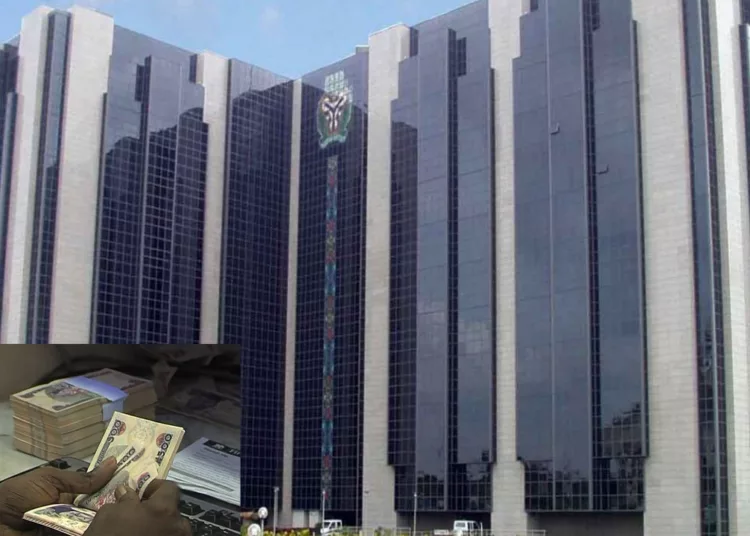The Central Bank of Nigeria’s (CBN) decision to cut its benchmark interest rate by 50 basis points to 27 per cent triggered an immediate decline in the overnight lending rate and sparked a sell-off in the Nigerian stock market. This rate cut—the first since 2020—reflects the central bank’s effort to ease monetary policy in response to easing inflation, which has declined for five consecutive months through August.
On Tuesday, the CBN lowered its monetary policy rate (MPR) by 50 basis points to 27 per cent—the first reduction since 2020—following a steady decline in inflation over five consecutive months through August.
This dovish move was further supported by the narrowing of the interest rate corridor, with the standing lending facility reduced to 29.5 per cent from 32.5 per cent and the deposit facility cut to 25.5 per cent from 26.5 per cent, signalling the central bank’s intent to relax monetary conditions.
Traders immediately repriced the overnight lending rate, which fell by 100 basis points to 25.5 per cent, reflecting the new benchmark and the surge in banking system liquidity, which expanded by N1.15 trillion to reach N3 trillion ($2.02 billion) on Tuesday, Reuters reports.
According to market participants, this excess liquidity has driven heightened activity in the money market even as investors remain cautious about the pace of further monetary easing and potential open market operations (OMO) issuances.
Reuters reports that economists had anticipated a slightly larger 75 basis point cut. Still, markets had largely priced in the 50 basis points ahead of the announcement, leading to a limited post-announcement reaction.
However, despite this easing in money market rates and plentiful liquidity, the Nigerian stock market reacted negatively. On Wednesday, the Nigerian Stock Exchange recorded its third consecutive day of losses, with the All Share Index (ASI) falling by 213.50 points or 0.15 per cent to close at 140,716.10 points. This sell-off wiped out N136 billion from market capitalisation, which ended at N89.063 trillion. The decline was mainly driven by sell pressure on major stocks, including MTN Nigeria Communications (MTNN), Cadbury Nigeria, UACN, Nigerian Aviation Handling Company (NAHCO), and May & Baker Nigeria.
Market analysts attributed the stock market weakness to investor caution following the rate cut.
Analysts at Afrinvest Limited attributed the bearish trend to the fixed income-equity asset trade-off triggered by the MPR cut, which has temporarily reduced the attractiveness of equities to investors looking for safer fixed income returns in a still risk-laden environment.
Market breadth was negative, with 29 stocks declining against 23 gainers. Notable exceptions included Dangote Sugar Refinery, which surged by 10% to N59.40, and MeCure Industries, up nearly 10%. Other mid-tier gainers were Cornerstone Insurance, Secure Electronic Technology, and UPDC Real Estate Investment Trust.
Meanwhile, stocks at the lower end of the spectrum saw steep declines, led by Deap Capital Management & Trust (down 9.42%), Legend Internet (-9.26%), and Wapic Insurance (-8.75%). Other notable losers included RT Briscoe Nigeria and May & Baker Nigeria. Market turnover also weakened, with total volume traded falling 41.7% to 442.558 billion units valued at N16.971 billion in 21,684 deals. Zenith Bank led the activity chart, followed by Access Holdings and First Holdco.
The combined effect of the CBN’s rate cut is thus creating a nuanced market environment: while liquidity and easing in money market rates signal optimism for lower borrowing costs and financial system support, cautious equity investors are reevaluating risk factors, causing a temporary pullback in stock market participation. How the market balances this dynamic will depend on forthcoming inflation data, further central bank actions, and the broader macroeconomic landscape in Nigeria.






